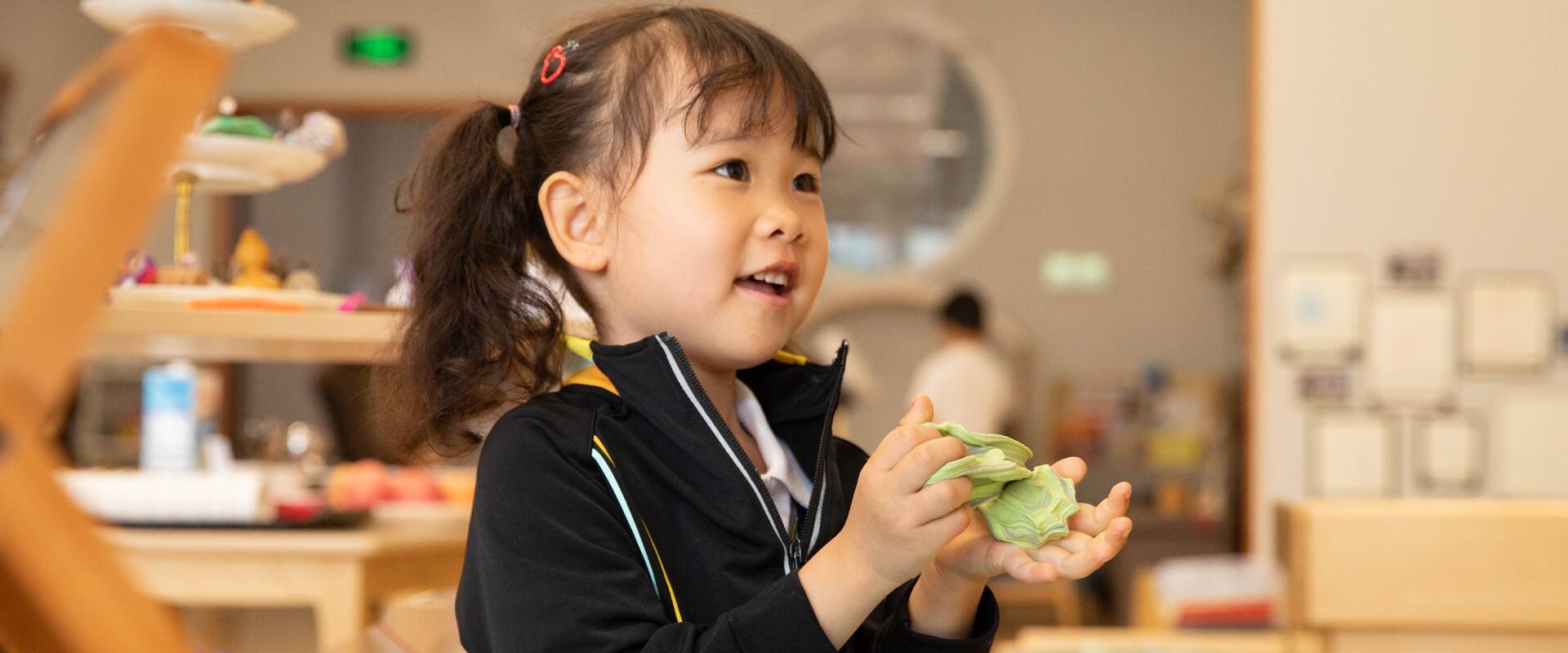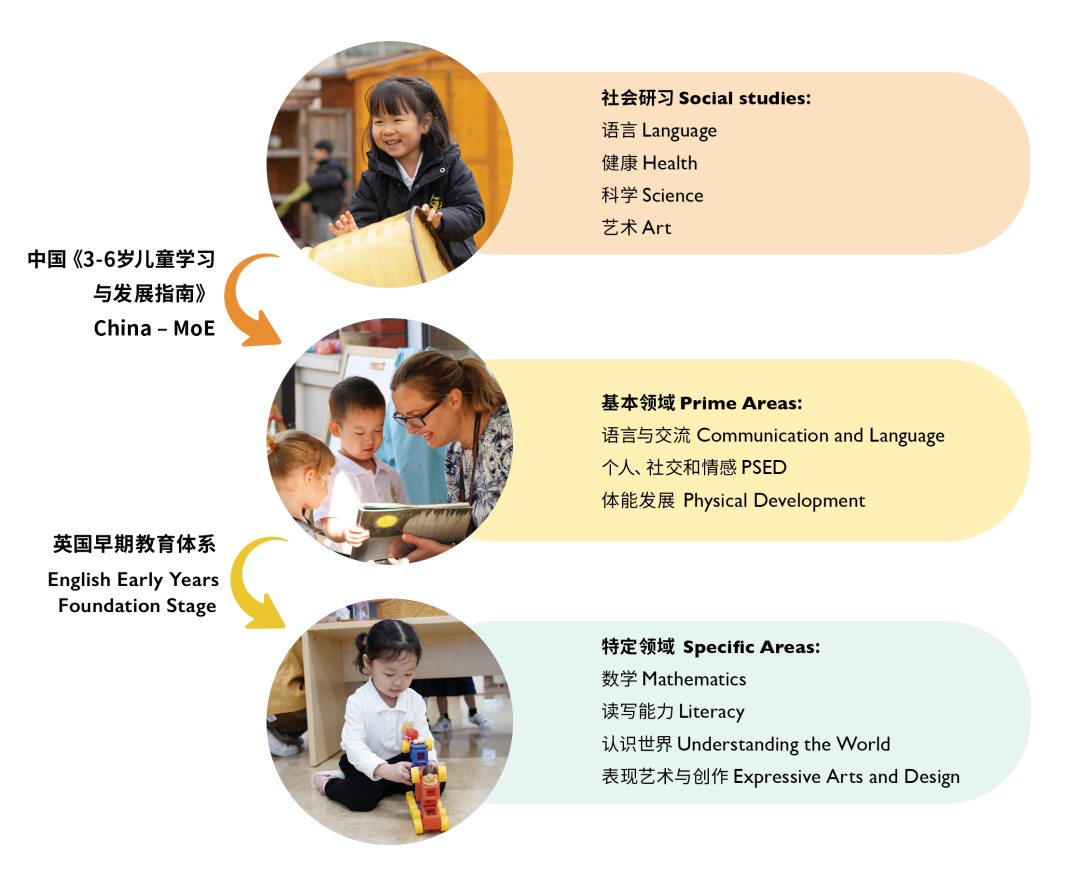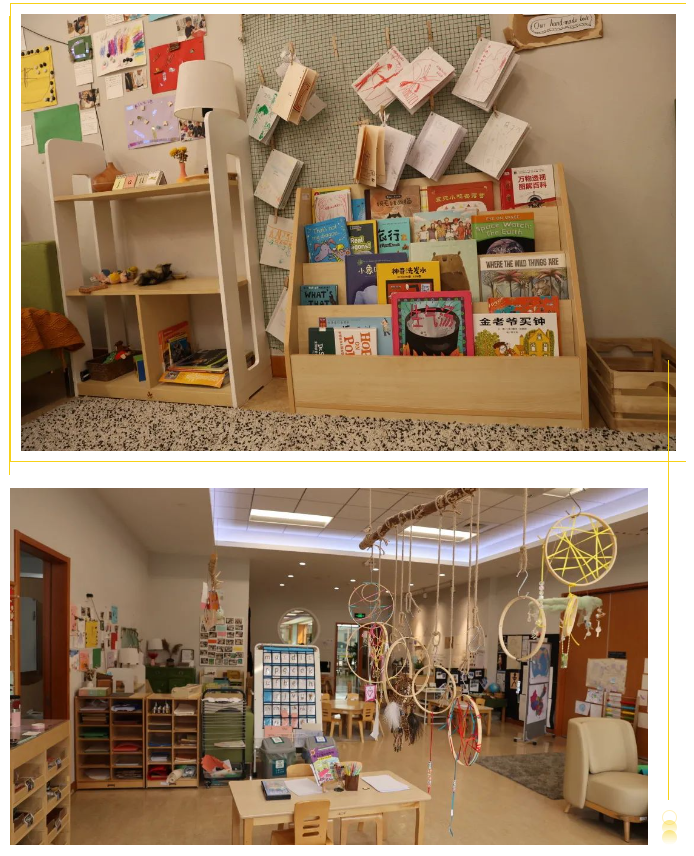
It is not impossible to master a new language as an adult, however, it can prove to be a challenge! We must consciously learn new vocabulary, understand grammar patterns and find the time to do so. Whereas babies and young children have the innate ability to acquire and learn language naturally and unconsciously; they can apply these same skills with ease when picking up other languages too. Research from the Centre on the Developing Child at Harvard University shows that in the first few years of life, one’s brain develops more than at any other time in life as more than 1 million new neural connections are formed every second. After this period of rapid proliferation, connections are reduced. Therefore, the early years are the best years for children to learn bilingually, or even multilingually, with their brains soaking up information like a sponge.
Members of our academic leadership team at Wellington College Hangzhou have rich teaching backgrounds with an average teaching experience of over ten years each, leading a team of outstanding educators recruited from within China and around the world. Over 60% of our Chinese staff have master’s degrees, with over 50% of them having an overseas learning experience. More than 90% of the expatriate staff come from the UK, USA, Canada and other English-speaking countries. In such an international-styled nursery, how do children learn English? Why do we say that literacy is so fundamental to a child’s growth? Today, Kelly Ashby, Assistant Head of Nursery, will tell us why and how our children learn English at Huili Nursery Hangzhou.
Kelly Ashby
Assistant Head of Nursery
1. Why is literacy fundamental?
"Reading and writing float on a sea of talk." —James Britton, an Educator
Literacy, by definition, is the ability to be able to read and write. Independent reading and writing can happen when children develop good knowledge and understanding of the English language. Therefore, before we even begin thinking about English literacy (a specific area), we first need to consider our pupils’ development in communication and language (a prime area). Our aim is that children become confident, effective communicators who can articulate themselves clearly, so that they can share their thoughts, needs and feelings to others.

2. Why do we focus on providing a reassuring environment?

Here at Huili Nursery Hangzhou we have children who have English as their first language, as well as children who are learning English as an additional language (EAL). Therefore, it is imperative that we create a rich language learning environment for children to flourish in both Chinese and English. The quality of the environment is incredibly important in supporting the learning and development of our pupils and their acquisition of English. We treat our environments as the ‘third teacher’; they are planned for with purpose and intent to support and scaffold children in their independent play, exploration and language development. Exposing children to a language rich, bilingual environment is proven to promote effective communication. Not only are children acquiring new vocabulary through talk, the exposure to more than one language is key for building effective social communication skills, for example, being able to interpret and understand others’ perspectives. We also have daily stories, song, rhythm and rhyme in English that expose children to new, repeated vocabulary, along with teaching methods such as Talk for Writing, Drawing Club and Drama in Education that contribute to their oracy development and skills.
"Children who have English as an Additional Language (EAL) will learn quicker and more deeply if they do so through play, collaborating with peers and being immersed in a rich environment of communication and social interaction." —Greg Bottrill, Can I go & play now
More articles:
The environment is the third teacher
Carpentry classes at Huili Nursery
An artist is introduced - Huili Atelier
3. Why PBL at nursery?
A perfect opportunity for children to learn new vocabulary in an organic way, is through our inquiry led, project-based approach. Projects that have emerged from the interests of the children automatically engage pupils with high levels of wellbeing and involvement. When interacting with the provision and provocations, adults can join in with the child’s play, supporting and scaffolding with new vocabulary in English. The language they learn during these periods of high involvement are purposeful, and therefore they are more likely to repeat this language time and time again, securing their understanding in meaningful contexts. At Huili Nursery Hangzhou, we are privileged to have a specialist atelier and music sessions give children further opportunities to practice, consolidate and deepen their understanding.
More articles:
Forging ahead on our journey with immersive learning projects
4. Phonics activities at our Nursery
Teachers plan opportunities to develop pupils pre-reading abilities with ‘phase 1’ phonics activities that focus on the everyday sounds around them. These activities begin in EY1 and continue throughout their journey in the nursery. Once children can discriminate the different sounds around them as well as orally segment and blend words, children move onto our Read, Write, Inc. phonics programme, this generally begins in EY3 or when the pupils are developmentally ready. These streamed phonics sessions teach our students the skills required to decode and read unknown words, however, may not fully support their comprehension and inference. Purposefully planned interventions and activities, such as shared reading and supported writing will further embed their English literacy skills. Children are then encouraged and supported to consolidate their learning independently with embedded literacy opportunities linked to their chosen play or class projects.
5. Why is wellbeing important when acquiring English?
Studies show that there is a clear link between pupil wellbeing and academic achievement. Wellbeing is at the heart of our curriculum; we believe this is the key to unlocking the potential of all children. For children to reach high levels of wellbeing, it is vital they feel safe and secure within their environment and with the adults who are around them. Under these conditions of safety and security we can nurture children with healthy, happy brain development that will naturally want to learn and acquire new language. Not only are high levels of wellbeing a key ingredient to our pupil’s involvement in learning but also in confident, articulate communication (also referred to as oracy). Our teachers regularly audit the environment to ensure that the needs of all learners are being met, as well as assessing individual wellbeing and involvement.
More articles:
Wellbeing: Why it is so important at Wellington College Hangzhou
Through our focus on wellbeing, involvement, communication and language, our bilingual curriculum ensures our pupils thrive on their English literacy journey at Huili Nursery Hangzhou and beyond. Furthermore, our unique and diverse approach to education at Huili Nursery Hangzhou will be individual and personalised to meet the needs of each and every child.